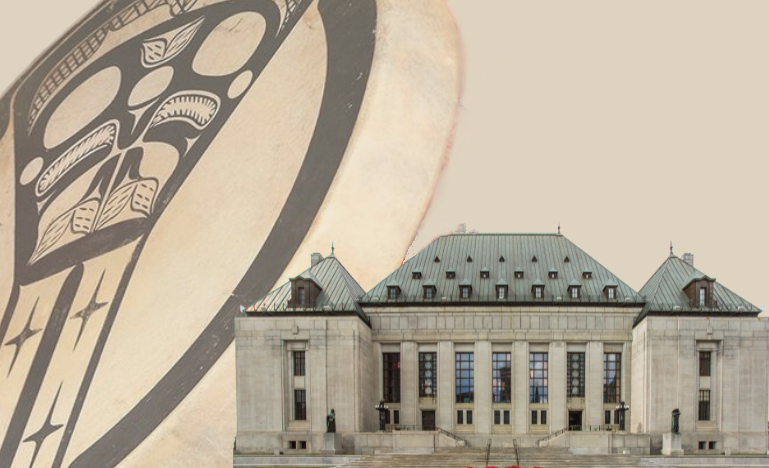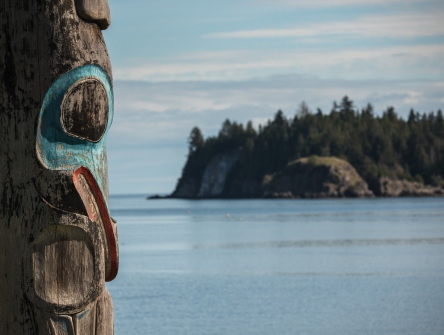An inherent right
Upcoming Bill C-92 ruling places the future of Indigenous self-government at a crossroads.

Later this month, the experts will get together in Ottawa for a CBA conference on the state of Indigenous self-government in Canada. They’ll have a lot of ground to cover — everything from the mechanics of treaty negotiations to the fiscal nuts and bolts of self-government.
They’ll also be asked to take stock of how far self-government has come and where it might be in five- or ten-years’ time.
On that point, the conference’s timing couldn’t be better — because Indigenous law practitioners say the immediate future of self-government in Canada will depend greatly on what the Supreme Court does with C-92 this year.
C-92 (An Act respecting First Nations, Inuit and Metis children, youth and families) represents a pivot in Ottawa’s approach to self-government. In place of protracted tripartite negotiations with provinces and Indigenous communities, C-92 cuts to the chase by affirming Indigenous peoples’ inherent right to self-government and declaring that it extends to child and family services (CFS). The law sets minimum standards for the provision of CFS to Indigenous peoples — standards that emphasize both the best interests of the child and “cultural continuity.”
It also slices through the Gordian knot of jurisdiction by giving Indigenous communities’ CFS laws the force of federal law as long as they enter into coordination agreements with federal and provincial governments (or attempt to do so for a period of one year). More than 20 Indigenous communities have sought coordination agreements since C-92 became law. Six Indigenous communities have passed their own CFS laws — one of them in Quebec.
It was Quebec that filed the constitutional challenge that kicked C-92 up to the Supreme Court. “Quebec’s position is that in order for the right of self-government to be recognized, there must be a constitutional amendment, a negotiated tripartite agreement or a court decision recognizing the right on a case-by-case basis,” says Katie Tucker, counsel in Indigenous law at Pape Salter Teillet LLP.
“As such, Quebec is challenging the federal government’s strategy of legislatively recognizing and affirming the inherent right of self-government for all Indigenous peoples.
“The federal government is saying in effect, ‘No, the right to self-government is inherent and is already protected under section 35 … we’re embracing it with this law.’ This legislative recognition reflects a certain impatience with the old way of doing things and a belated response to calls to action to address the Indigenous youth protection crisis in this country.”
A year ago, the Quebec Court of Appeal ruled that C-92 falls under federal jurisdiction and the Indigenous right of self-government in CFS is protected by section 35 of the Constitution. It also concluded that Ottawa can’t extend the force of federal law to cover Indigenous CFS laws and, in effect, such laws wouldn’t automatically prevail over conflicting provincial laws.
“Look, I act for Indigenous parties. I found Quebec’s arguments very retrograde,” says Nicholas Dodd of Dionne Schulze in Montreal.
“Which is why I felt a certain cold-hearted satisfaction with the Court of Appeal ruling, which — after Quebec said it wanted the court to find the law unconstitutional but didn’t want it to rule on the existence of the inherent right to self-government — went ahead and said the right to self-government exists and is inherent.”
The case puts the self-government project at a crossroads. If the SCC embraces all aspects of C-92 this year — affirming the inherent right, extending the protection of federal law — then more legislation affirming the inherent right in other policy areas could follow. If the court pulls back from what C-92 represents, the federal government’s ability to pursue what academic Naiomi Metallic calls a “legislative reconciliation” approach to section 35 rights will be placed in jeopardy.
“We’ve got three mechanisms for establishing self-government arrangements in this country — litigation, legislation and negotiation,” says Metallic, of Dalhousie’s Schulich School of Law. “That’s it. Negotiations happen, but they’re slow as molasses. Litigation has turned out to be extremely ineffective. C-92 represents the third way.”
Metallic says legislative reconciliation laws like C-92 differ from “devolution” laws — laws that, like the Indian Act, grant authority to other orders of government — in that they deal with a pre-existing right that isn’t a gift of government.
“The scope of, and any limits placed on, delegated jurisdiction is at the whim of the devolving government, without any recourse by Indigenous groups,” she wrote in a recent paper.
“By contrast, limitations placed on inherent jurisdiction, as a protected constitutional right, would have to be justified by the government, or else found unconstitutional.”
Dodd predicts that the SCC will “pull back” — that while it will preserve the effects of C-92, it will reinterpret the law as deriving its authority from the federal government, not from the inherent right to self-government.
“The odds of the SCC rejecting the law outright are extremely low,” he says. “But I think it’s going to interpret it in a way Indigenous groups aren’t going to like. I can see the court concluding that while the law is constitutional, it has to be treated as delegated, devolved authority, not an inherent right.”
Metallic agrees the SCC could opt to read C-92 as a devolution law. “It could say the right is not inherent,” she says. “It would lead to outrage, more court cases. This is not a right that Indigenous people in this country ever surrendered.”
The court could also punt on the question of the inherent right, she adds. “In Pamajewon, the SCC said it wasn’t going to say yes or no to the inherent right to self-government in section 35,” she says. “But lower courts have entertained it. The SCC has been trying to avoid the question, but it can’t. It could sidestep it again, though, just decline to say yes or no.”
“But at this point in our history,” she adds, “shouldn’t the court just find its courage and make the declaration?” The U.S. Congress has passed more than 40 laws “accommodating U.S. tribes’ inherent rights” since the late 1960s, she says.
“The sky’s not going to fall just because self-government is an inherent right.”
And the SCC isn’t acting in a vacuum, says Tucker. Indigenous child welfare is in a crisis state. Indigenous children account for less than 8% of the total in Canada — but they account for more than 53% of kids in foster care.
The right of self-government has already been affirmed in treaties and agreements, commission reports, federal policies, provincial laws, binding international laws and lower court decisions. Ottawa co-developed C-92 with Indigenous peoples — something else the high court should keep in mind, says Tucker.
“Canada is grappling with the painful legacy of residential schools and the catastrophic impacts of state-sanctioned assimilationist policies,” she says. “Particularly in light of this history, the inherent right of self-government over their children and families should be the least controversial Indigenous jurisdictional authority.”


